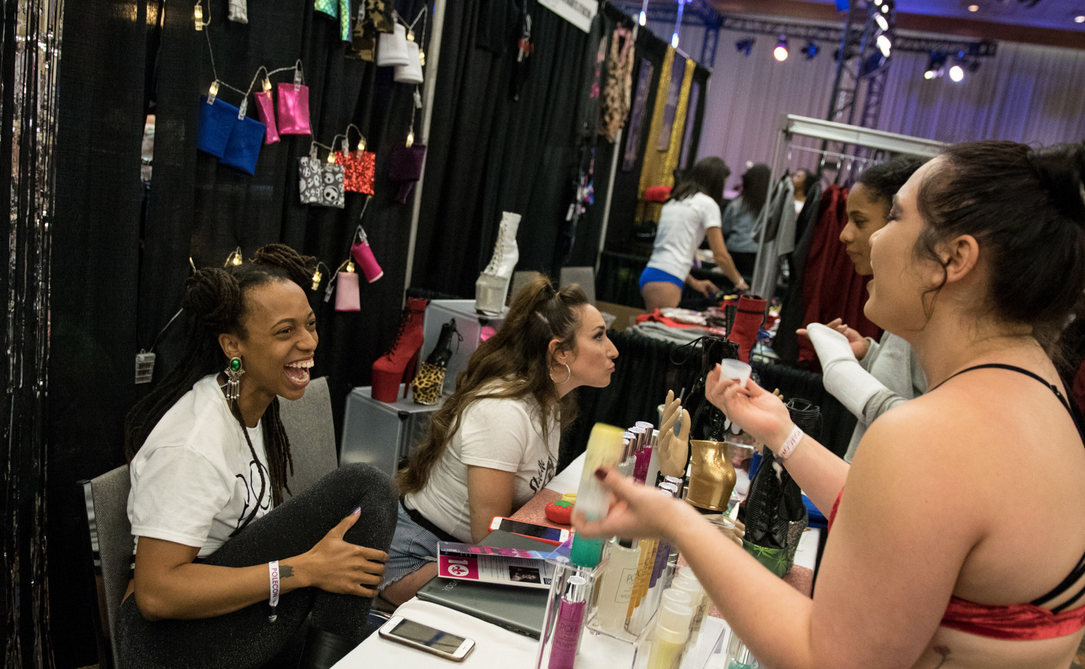
Mo’ Money, Mo’ Problems: how to fund your pole dance based business
Mo’ money, mo’ problems? For the pole-prenuer—unlikely. From getting capital to start up your business, propel your business forward or just to manage cash flow between slow months, getting more money is always a challenge.
There is no “best way” to fund a business, rather there are lots of options that will help you start or continue to fund your business. You will likely use a combination of these options as your business grows and changes. All have positives and negatives, differing timelines and other requirements that will affect your decision to implement or to ignore.
My money, my problem
The most traditional way to personally fund your business includes through savings, through pilfering your retirement funds or other investments (many IRAs and 401Ks offer “loan” options that do not require you to cash out your entire savings), debt funding through credit cards or even personal loans (see below for more information on loans.) Financial advisors generally recommend that you have 3-6 months of expenses CASH in your bank account for personal emergencies—you can use the same metric for your business. If all your cash isn’t liquid, make sure you have alternative personal sources lined up for when you do need them. Review your credit card terms and understand cash advance rules, interest rate changes and if/when you are eligible for a credit increase. If you are going to access other financial vehicles such as your retirement or even your home’s equity in the form of a line of credit or loan (), do the paperwork first—don’t presume it’ll be there instantly when your business really needs it. Read the fine print and understand what you can do and how long it takes (timelines can vary between days and weeks to access funds).
Lenders
Traditional loans are another way to fund your business, either personally securing them with your own credit and collateral (like a house or car) or through your business directly. The challenge with most loans is that if your credit history is iffy and/or your business doesn’t have a solid financial history yet, traditional lenders like banks will not give you a loan AND will take weeks to tell you. Depending on where you live and your demographic details, you may be eligible for loans through smaller banks, credit unions or local community programs that overlook credit issues and may even provide business counseling and/or mentorship. If you are active or former military, are not a white man and/or live in an economically depressed area, you may have access to additional subsidized loans through the federal government. Many of these loans are realized through local organizations, so do your homework before committing to one loan resource. One challenge with local organizations is that they do not fund everyone and pole particularly is not a well-understood industry. Talk to your loan officers and find out all the requirements first.
Grants
Similar to loans, grants through the federal government’s Small Business Administration (SBA) or local organizations (community, faith-based or industry/project specific) might be available to you, particularly if you are a woman or part of a demographic minority group. Like loans, grants have different requirements and are not always accessible to for-profit companies. Grants often require a proposal or project plan detailing why you should receive the grant, what you are going to do with the money and how you will measure success. Grants, particularly at the government level, may take months to be reviewed and processed so start early if you think grants are right for you. This is not a good option if you suddenly realize you can’t make payroll on money. (One example of a grant website)
Crowdfunding
Crowdfunding is a relatively new concept based mostly online and is very accessible for for-profit/non-profit, large and small businesses either to start up or to propel the business to the next level. There are LOTS of different websites available, each with their own rules, fees, timelines and relevance your specific business. This list is a good starting point to review should you choose to crowdfund your business. If you are ready to start but unsure how to develop a professional pitch, there are companies that can help you with that—for a fee of course. Crowdfunding is not a guarantee and some small business get overwhelmed by the amount of time required to launch and manage a campaign. Several pole businesses have successfully done crowdfunding campaigns, including two successful Kickstarter campaigns by Pole Dancing Adventures. Several other pole businesses have used Teespring to start apparel lines and GoFundMe to support personal campaigns.
Other Peoples’ Money
The elusive “investor” could be a family member, an “Angel” investor (a wealthy person you have some connection to that gives you money) or even a venture capitalist (typically for more high tech industries). Every person is different and you privately may arrange some sort of a profit split, a personal loan, other trade in services or even go on TV and convince the Shark Tank crew to invest in you. Investors can be great or terrible. Whatever arrangement you make with someone—get it in writing. Several business gurus recommend NOT to borrow money from family or friends as it can often complicate relationships. Use this tip at your own risk.
Alternative Lending
This is a broad category of new options changing the landscape for small business loans. When traditional lending can make you wait weeks (or months!) to fund you, new online lenders like Kabbage.com make lending decision in seconds through linking your bank account, payment accounts (like Authoriz.Net, eBay or PayPal) and social media accounts. There are no collateral requirements and the loan amounts are typically higher than traditional lenders, up to $100K depending on the business including factors such as “capacity to repay, character, and the consistency or stability of the business” and is best for businesses 6 months or older with $50,000 or more in yearly revenue. Interest rates aren’t low and can be as high (27 to even 40% depending) over a 6 or 12-month (accessible once you’ve paid on a 6-month loan successfully) period. Kabbage is online and allows you to take micro loans similar to accessing a line of credit once per day and deposits money to a debit card or into your bank account in a few days making it perfect for evening out the “hills and valleys” of cash flow.
What I have tried? Personally, I’ve funded my own pole businesses through a combination of savings, debt financing and now Kabbage to help smooth out my regular expenses versus revenue. I’ve tried traditional grants and loans and had little success in the pole industry, although I have had significant success with grants in my more corporate endeavors using state-based organizations and have also been able to access traditional commercial lines of credit. Do your homework and find out what works best for where you are with your business and in line with your risk tolerance. Starting a business is not for the faint of heart and even established businesses sometimes need a kick start or help during an unexpected slowdown. Have another great resource for how you’ve funded your business? Please share!
2019 Update
In full disclosure, Kabbage.com was there for me when no one (and I mean NO ONE) would help me out and lend me money. Kabbage is the reason PoleCon kept going. BUT it was also almost the end of PoleCon. With 20+% interest, short term loans meant that any getting ahead really wasn’t moving anywhere. If you can keep your business floating through a couple of bad times then you are likely to qualify for a loan from a legit bank. I can’t make any guarantees about that but that is what happened to me. YEARS of being a good customer with a bank and they finally gave me a loan with a reasonable interest rate. Also years of simply being in business meant that venues no longer requested tons of up front money just to hold our convention dates. Sometimes “winning” in business really is just surviving long enough.
Originally published on the Bad Kitty Blog in 2016. Reposted with permission.
- Updating Workshop Levels at PoleCon (2025 and Beyond) - July 19, 2024
- PoleCon Exhibitor Spotlight: Flaaluhs - July 5, 2024
- Teacher Tip: How to improve your verbal cues - June 28, 2024


